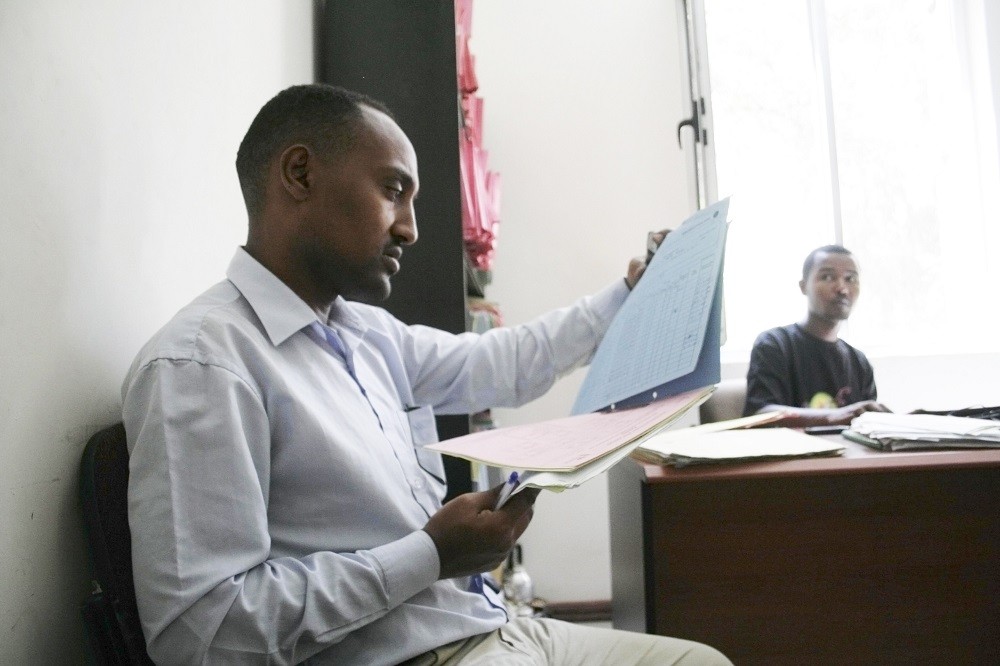“Achieving the 90-90-90 goals requires health systems to provide services that work – and that clients want to use.”
So says Gillian Dougherty, BSN, MPH, a senior quality improvement technical advisor at ICAP who is focused on the ways in which improving the quality of health services can improve health outcomes.
“Quality improvement uses a specific methodology to continuously plan, implement, and adapt solutions that lead to improved outcomes,” noted Ms. Dougherty. “Sometimes what health care workers know and what they deliver are two different things. We call this the ‘know-do’ or ‘theory-to-practice’ gap, and it’s a major barrier to quality health services in many health systems.”
Ms. Dougherty sees ICAP’s innovative HIV Coverage, Quality, and Impact Network (CQUIN) as a direct pathway to overcoming that obstacle. Ensuring quality services for people living with HIV is a key part of CQUIN’s goal of scaling up differentiated service delivery (DSD) in sub-Saharan Africa. That’s why the network, now in its second year, is exploring ways that quality improvement (QI) methodology can enhance DSD.
Experience from the CQUIN network indicates that the rapid scale-up of DSD has been associated with quality challenges in some settings. For example, misclassification of patients has led to “unstable” patients being enrolled in DSD in several countries. In others, viral load test results are not used to guide treatment decisions, limiting the potential impact of DSD.
“Implementing DSD with quality and fidelity is essential to achieving impact,” said Peter Preko, MBChB, MPH, CQUIN’s project director. “CQUIN supports quality in many ways, including providing technical assistance to ministries of health, developing strong monitoring and evaluation systems, supporting evaluations and assessments, and promoting the use of QI methods within DSD programs.”
CQUIN recently supported the Zambia Ministry of Health to convene stakeholders to discuss various DSD models and guidelines. The meeting was a prelude to the launch of a Zambia-based QI for DSD learning network that ICAP will support with funding from the U.S. Centers for Disease Control and Prevention (CDC). The goal is to facilitate both identification of DSD quality challenges and implementation gaps, and the application of QI methodology to improve DSD services.
“Quality standards—guidelines for implementing an activity at the highest level—should be set from the very beginning of a program or intervention. Those standards can then be used on an ongoing basis, to identify and address challenges,” said Ms. Dougherty. “Improving quality ensures that people who receive services get the maximum benefit. At the community level, ensuring quality can increase utilization of DSD services in a community and build trust.”






